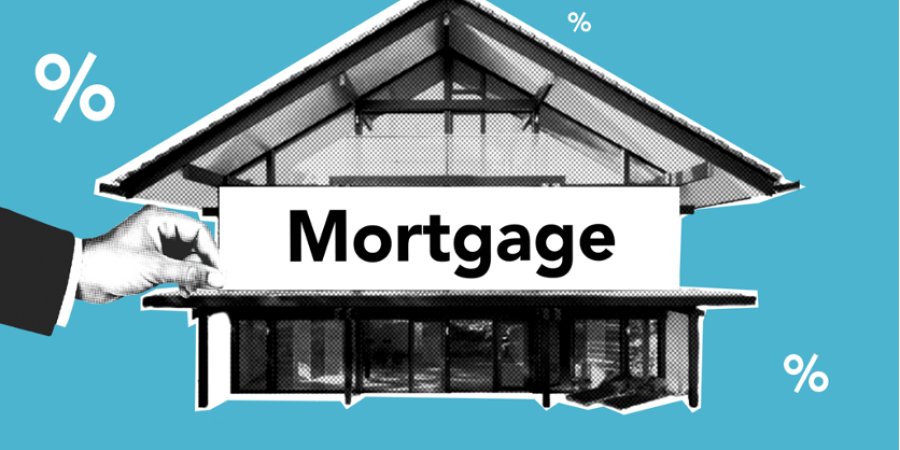Mortgage Keeps Going Up: What To Do

Is your mortgage payments are steadily increasing? Don't panic! In this article, we will explore what to do when your mortgage keeps going up, and how to find potential solutions without breaking the bank.
As a homeowner, it can be stressful to see your mortgage payments continually rise. However, there are proactive steps you can take to manage the situation and alleviate the financial strain.
Understanding Why Mortgage Rates Increase
It's essential to understand why mortgage rates increase before diving into potential solutions. Mortgage rates are influenced by various factors, including the overall economy, inflation, and the Federal Reserve's monetary policies. When the economy is strong, interest rates tend to rise, leading to higher mortgage payments for homeowners. Inflation can also impact mortgage rates, as lenders adjust their rates to account for rising costs. Additionally, the Federal Reserve's decisions on interest rates play a significant role in determining mortgage rates.
The Impact of Rising Mortgage Rates on Homeowners
Rising mortgage rates can have a significant impact on homeowners' financial well-being. As mortgage payments increase, it can become more challenging to manage monthly expenses and maintain a balanced budget. Higher mortgage payments may force homeowners to cut back on other essential expenses or dip into their savings to make ends meet. In some cases, homeowners may even face the risk of foreclosure if they can no longer afford their mortgage payments. It's crucial to take proactive steps to address increasing mortgage rates and avoid potential financial hardships.
Strategies for Managing Increasing Mortgage Payments
While rising mortgage rates can be daunting, there are several strategies you can employ to manage the situation effectively. One option is to consider refinancing your mortgage. By refinancing, you can take advantage of lower interest rates, potentially reducing your monthly mortgage payments. However, it's important to carefully evaluate the costs associated with refinancing, such as closing costs and fees, to ensure it is a financially viable solution.
Another strategy is to negotiate with your lender. If you have a good payment history and a strong credit score, your lender may be willing to offer you a lower interest rate or extend the term of your mortgage. Open communication and demonstrating your commitment to fulfilling your financial obligations can go a long way in securing more favorable terms.
Exploring Alternative Mortgage Options

In addition to refinancing and negotiation, exploring alternative mortgage options can be beneficial when dealing with increasing mortgage payments. For example, you could consider switching to an adjustable-rate mortgage (ARM) instead of a fixed-rate mortgage. ARMs typically offer lower initial interest rates, allowing you to save money on monthly payments during the initial term. However, it's important to carefully analyze the terms and potential risks associated with ARMs, as the interest rates can fluctuate over time.
Government Assistance Programs
It's worth exploring government assistance programs designed to help homeowners facing financial difficulties. The Federal Housing Administration (FHA) and the Department of Veterans Affairs (VA) offer programs that can provide relief to eligible homeowners, such as loan modifications or assistance with refinancing. Additionally, some states and municipalities have their own assistance programs that may be worth investigating.
The Importance of Budgeting and Financial Planning
As mortgage payments increase, effective budgeting becomes even more critical. Take the time to evaluate your current expenses and identify areas where you can cut back. Consider creating a detailed budget that encompasses all your monthly expenses, including mortgage payments, utilities, groceries, and discretionary spending. By tracking your expenses and making necessary adjustments, you can ensure that your finances remain under control despite rising mortgage rates.
Seeking Professional Advice
If you're feeling overwhelmed or unsure about how to navigate the increasing costs of your mortgage, seeking professional advice can be highly beneficial. Mortgage brokers and financial advisors specialize in helping homeowners find solutions to their mortgage-related challenges. They can provide personalized guidance based on your specific financial situation, offering insights and recommendations that can help you make informed decisions.
Steps to Take if You Can No Longer Afford Your Mortgage
In some cases, despite your best efforts, you may find yourself unable to afford your mortgage payments. If this happens, it's crucial to take immediate action rather than ignoring the problem. Contact your lender and explain your situation. They may be able to offer temporary forbearance or loan modification options to help you through a difficult period. Additionally, consider seeking legal advice to understand your rights and explore potential alternatives, such as selling your home to avoid foreclosure.
Conclusion and Final Thoughts
Rising mortgage payments can be a source of stress for homeowners, but it's important to remember that there are viable solutions available. By understanding why mortgage rates increase, exploring strategies for managing increasing mortgage payments, and seeking professional advice when needed, you can regain control of your financial situation. Remember to prioritize budgeting and financial planning to ensure that your expenses remain manageable. With careful consideration and proactive steps, you can overcome the challenges posed by rising mortgage rates and secure a more stable future for yourself and your family.
Remember, you're not alone in this journey. Reach out for support, explore your options, and take steps towards financial stability.
More to Read:
Previous Posts:

